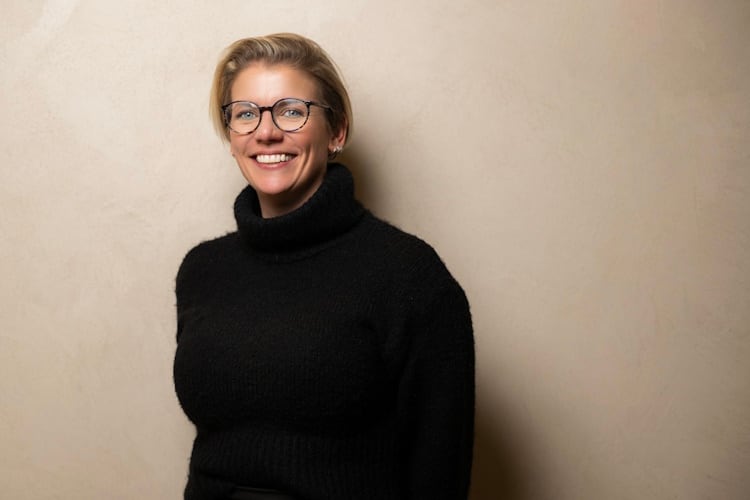As the food packaging sector pushes for greener alternatives, biochemicals and biomaterials are quickly rising to the forefront of sustainable innovation. Yet the price tag attached to these next-gen solutions continues to stand in the way of widespread adoption.
Jen Vanderhoven, chief operating officer of the Bio-based and Biodegradable Industries Association (BBIA), is uniquely positioned to tackle these issues head-on. She is moderating the ‘Biochemicals: Rethinking the Building Blocks for Sustainable Manufacturing’ panel at the Rethinking Materials Innovation & Investment Summit, returning to London’s Hilton Bankside on 13-14 May.

This premier event – hosted by Rethink, a William Reed company - drives partnerships and investment in synthetic materials, bio-based alternatives and circular solutions. Focused on upstream innovation - from material selection to designing out waste - it offers actionable insights to future-proof businesses across the packaging, textiles, durable goods and hygiene sectors.
Joining Vanderhoven on stage for the breakout session (13 May at 16:45) will be an international lineup of innovation leaders, including Marc Leduc, investment manager at BASF Venture Capital (Germany); Richard Lock, chief operating officer & MD of Holiferm (UK); Rui Resendes, director of Development at Change Chemistry (Canada); Neeka Mashouf, cofounder & CEO of Rubi Labs (USA); and Sunghee Son, head of Business Development, Europe at LG Chem (Germany).
Ahead of the summit, we caught up with Vanderhoven to find out more about the challenges and the opportunities shaping the future of sustainable food packaging.
Breaking through the cost barrier

“We’ve got the science, we’ve got the startups and we’ve got the commitment to produce bio-based chemicals and plastics,” Vanderhoven told us. “But the main issue at the moment is how we get across the cost barrier.”
The challenge? Fossil-based products remain abundant and incredibly cheap, making it hard for sustainable options to compete, even when consumers care about the environment.
“Perhaps we need to make sustainable materials not just the right choice, but the obvious choice,” Vanderhoven said. “And the panels bringing together a range of perspectives - venture capitalists, people scaling materials - because the real focus is on why the cost barrier exists and how we fix it.”
From expensive feedstocks to high-tech manufacturing hurdles and fossil fuel subsidies keeping traditional plastics artificially low-cost, Vanderhoven sees a complicated web of factors slowing the green transition.
“When it comes down to it, even though people want greener options, during a cost of living crisis, are they actually prepared to pay more?” she said. “Often, the answer is no.”
“We need to make sustainable materials not just the right choice, but the obvious choice."
Jen Vanderhoven, BBIA
Policy reform

One of the clearest ways to drive down costs, Vanderhoven argues, is to rethink the system-level incentives that favour fossil materials today.
“We need to stop subsidising fossil-based materials,” she said. “Current regulations like the Plastic Packaging Tax and Extended Producer Responsibility still favour incumbent products made from oil and gas.”
Even well-intentioned strategies - such as promoting biomass use for energy or sustainable aviation fuel - divert crucial raw materials away from high-value applications like food packaging and durable goods.
“In the UK, biomass is mostly directed toward burning, not product manufacturing,” Vanderhoven explained. “Instead, we should be using it to create longer-living, higher-value materials.”
Without a coordinated long term strategy, innovation will continue to face headwinds. “What we need is a bold plan that transcends the political cycle: one that says yes, bio-based materials make sense and here’s how we’ll support them.”
Other countries offer models to follow.
“The US BioPreferred programme uses public procurement to drive demand for bio-based products. In France, construction materials for public projects must meet bio-based content quotas. Germany, Sweden, the Netherlands - they’re way ahead of us,” she warned. “The UK needs to catch up.”
Building momentum with BBIA

As COO of BBIA, Vanderhoven works closely with nearly 80 organisations trying to commercialise bio-based and biodegradable products across the UK and Europe.
“We exist to influence better policy, support innovation and give the sector a stronger voice,” she said. “Connecting innovators with policymakers, industry and investment communities is critical to creating real market opportunities.”
Vanderhoven is particularly excited about the diversity of companies joining her panel on 13 May.
One standout is Holiferm, represented by COO Richard Lock. “They manufacture bio-surfactants - essential ingredients in shampoos and cleaning products - from biomass instead of fossil oils,” she said. “They’ve gone from university lab research to commercial manufacturing and it’s a brilliant success story.”
Another is Rubi Labs, which is tackling carbon emissions head-on by using captured CO₂ as a feedstock to create bio-based fibres and materials.
“These are the kinds of pioneering solutions we’ll be discussing,” Vanderhoven said. “Not theoretical future tech - products scaling now, overcoming real challenges.”
The PFAS problem

As the conversation around sustainable packaging accelerates, so too does the scrutiny around toxic materials like PFAS – the ‘forever chemicals’ linked to health risks.
“We absolutely want to make sure that new bio-based materials don’t carry toxic legacies,” Vanderhoven said. “That’s why strict regulations are in place, particularly for food contact applications. In the UK, materials must pass REACH regulations, involving extensive safety testing.”
She remains optimistic that emerging materials will avoid the pitfalls of the past, but vigilance is key.
Who should attend?

According to Vanderhoven, the upcoming session will be valuable for a wide range of players.
“Anyone already making bio-based materials who wants to build connections or companies curious about the potential environmental and economic benefits should be there,” she said. “Investors, sustainability leads, innovation teams - there’s something for everyone.”
Beyond the breakout meetings, the Rethinking Materials Summit will feature tailored networking sessions, a start-up showcase, pitch presentations and a 1-1 meeting app designed to turn inspiration into real-world partnerships.
“Innovation alone isn’t enough,” Vanderhoven concluded. “We need collaboration, commitment and investment to make sustainable packaging the standard, not the exception. Events like Rethinking Materials are where real momentum begins.”


